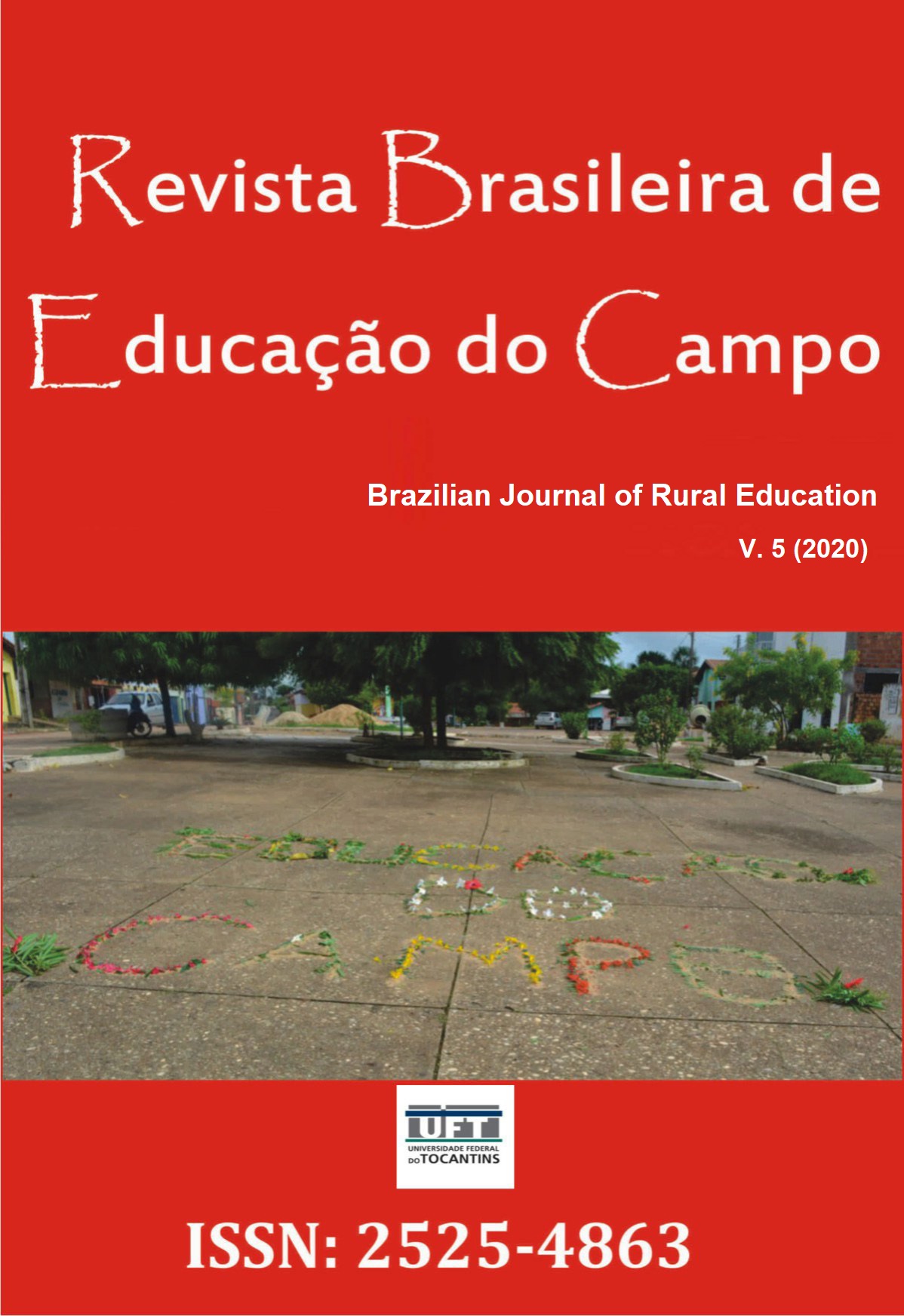From literacy to politicization in the Viva Deus Community
DOI:
https://doi.org/10.20873/uft.rbec.e6500Abstract
ABSTRACT. This paper aims to present a practical experience of Popular Education, considering its social, pedagogical and cultural importance in resistance processes, based on the conceptions of Paulo Freire and how this contributes to literacy processes in a context of popular struggle for land in the Viva Deus Community, located on the rice road in the city of Imperatriz/MA, which has the Teaching. Research and Extension Group in Popular Education - GEPEEP. In this sense, we will present two training fronts: EJA literacy and politicization, emphasizing literacy through Freirean methodology, which brings us the circle of culture and the generating word as basic elements for the formation. Thus, starting from a dialogic, democratic, emancipatory action that is not only bound up with the formative process of knowing how to read and write, but also with a reaffirmation of the identity of the community, of the autonomous existence itself in the social space, meaning and can affirm the concretization of changes and transformations of the Living God Community.
Downloads
Literaturhinweise
Arroyo, M. G. (2004). Imagens quebradas: trajetórias e tempos de alunos e mestres. Petrópolis: Vozes.
Barroso, B. O. (2015) A constituição do sujeito de aprendizagem: uma perspectiva da aprendizagem situada na alfabetização de jovens e adultos no centro de cultura e desenvolvimento do paranoá – CEDEP – DF (Tese de doutorado). Universidade de Brasília, Brasília.
Brandão, C. R. (2005). Paulo Freire, Educar para transformar. São Paulo: Mercado Cultural.
Fávero, O. (2005). Memória das campanhas e movimentos de educação de jovens e adultos (1947-1966). Núcleo de Estudos e Documentação de Educação de jovens e Adultos. Rio de Janeiro: UFF. Recuperado de http://forumeja.org.br/df/files/leiamais.apresenta.pdf
Freire, P. (1977). Educação como prática da liberdade. Rio de Janeiro: Paz e Terra.
Freire, P. (1978). Cartas à Guiné-Bissau: registro de uma experiência em processo. 4ª Ed. Rio de Janeiro: Paz e Terra.
Freire, P. (1979). Conscientização: teoria e prática da libertação – uma introdução ao pensamento de Paulo Freire. São Paulo: Cortez & Moraes.
Freire, P. (1991). A Educação na cidadania. São Paulo: Cortez.
Gadotti, M. (Org.). (1996). Paulo Freire: uma biobibliografia. São Paulo: Cortez/Instituto Paulo Freire.
Gohn, M. G. (2011). Movimentos sociais na contemporaneidade. Revista Brasileira de Educação, 16(47), 333-361. https://doi.org/10.1590/S1413-24782011000200005
Mora-Osejo, L. E., & Borda, O. F. (2004). A superação do eurocentrismo: Enriquecimento do saber sistêmico e endógeno sobre nosso contexto tropical. In Santos, B. (Org.). Conhecimento prudente para uma vida decente (pp. 711-720). São Paulo: Cortez.
Plataforma Instituto Paulo Freire. Recuperado de www.paulofreire.org
Scocuglia, A. C. (2000). A educação de jovens e adultos: histórias e memórias da década de 60. Brasília: Plano Editora.
Soares, L. J. G., & Pedroso, A. P. F. (2013). Dialogicidade e a formação de professores na EJA: as contribuições de Paulo Freire. Educação Temática Digital, 15(2), 250-263. https://doi.org/10.20396/etd.v15i2.1281
Souza, R. A., & Matineli, T. A. P. (2009). Considerações históricas sobre a influência de John Dewey no pensamento pedagógico brasileiro. Revista HISTEDBR On Line, 35, 160-162. https://doi.org/10.20396/rho.v9i35.8639620
Vieira, M. C. (2006). Memória, história e experiência: trajetórias de educadores de Jovens e Adultos no Brasil (Tese de Doutorado). Universidade Federal de Minas Gerais, Belo Horizonte.
Wanderley, L. E. (1984). Educar para transformar: educação popular, igreja católica e política no Movimento de Educação de Base. Petrópolis: Vozes.
Weffort, F. C. (1967). Educação e Política: reflexões sociológicas sobre uma pedagogia da liberdade. Rio de Janeiro: Paz e Terra.
Veröffentlicht
Zitationsvorschlag
Ausgabe
Rubrik
Lizenz
Creative Commons Attribution License
Creative Commons Attribution License
Proposal for Copyright Notice Creative Commons
1. Policy Proposal to Open Access Journals
Authors who publish with this journal agree to the following terms:
A. Authors retain copyright and grant the journal right of first publication with the work simultaneously licensed under the Creative Commons Attribution License that allows sharing the work with recognition of its initial publication in this journal.
B. Authors are able to take on additional contracts separately, non-exclusive distribution of the version of the paper published in this journal (ex .: publish in institutional repository or as a book), with an acknowledgment of its initial publication in this journal.
C. Authors are permitted and encouraged to post their work online (eg .: in institutional repositories or on their website) at any point before or during the editorial process, as it can lead to productive exchanges, as well as increase the impact and the citation of published work (See the Effect of Open Access).














